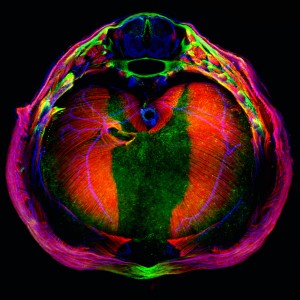Postdoctoral Position in Muscle Development, University of Utah
Posted by Gabrielle Kardon, on 8 February 2016
Closing Date: 15 March 2021
Postdoctoral position to study development of the diaphragm muscle and congenital diaphragmatic hernias (CDH) using mouse genetics, in vivo and in vitro studies, 2 photon imaging of live embryos, and genomic data from CDH patients.

The diaphragm is the most essential mammalian skeletal muscle – vital for respiration and a critical barrier between the thoracic and abdominal cavities. Defects in diaphragm development are the cause of CDH – a common and often lethal birth defect. Despite the diaphragm’s functional importance and the frequency and severity of CDH, how the diaphragm develops and the etiology of CDH are only just beginning to be understood. The goals of this postdoctoral position are to build upon our recent research insights (Merrell et al. Nature Genetics 2015 and highlighted in the New York Times) and explore the genetic, molecular, and cellular mechanisms regulating the development of the diaphragm and determine how these processes are mis-regulated in CDH.
We are seeking a motivated, enthusiastic, and hard-working postdoctoral fellow to join our research team. The position is in the lab of Gabrielle Kardon (http://kardon.genetics.utah.edu/). The lab is located in the Department of Human Genetics at the University of Utah in Salt Lake City, providing a strong and collaborative research community, comfortable lifestyle, and ample opportunities for outdoor recreation.
Looking for postdoc to start anytime between Feb and Dec 2016. Please contact Gabrielle Kardon (gkardon@genetics.utah.edu) with CV, list of references, and a brief statement about why you are interested in the position. PhD in biology or biochemistry is required.


 (No Ratings Yet)
(No Ratings Yet)